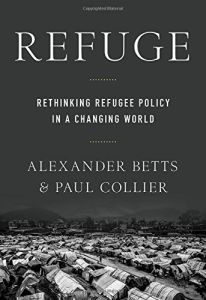Rejoignez getAbstract pour lire le résumé !

Rejoignez getAbstract pour lire le résumé !
Paul Collier and Alexander Betts
Refuge
Rethinking Refugee Policy in a Changing World
Oxford UP, 2017
Aperçu
It’s time for a 21st century approach to the problem of refuge.
Recommendation
If you think handling the refugee crisis is a simple matter of opening or closing borders, getAbstract recommends Alexander Betts and Paul Collier’s impassioned look at the global refugee crisis for additional context. The Oxford University professors serve up a succinct analysis of the forces that have led nearly 1% of the globe’s population – primarily Syrians and Libyans – to risk their lives crossing the Mediterranean. They pointedly sum up Europe’s response, which they dismiss as panicked and short-sighted. Wealthy countries that turn away huddled masses fleeing for their lives, the authors claim, are akin to able-bodied adults declining to save a drowning child because they don't want to get their clothes wet. Betts and Collier’s prose is both erudite and refreshingly straightforward, and they make a compelling case for why a new, multifaceted approach to refugees is needed. But the authors do seem to downplay the deep economic anxieties and cultural fears sweeping much of the globe. Until those insecurities ease, it seems unlikely that the world’s powers will tap into the “generosity of spirit” that the authors say should form the foundation of any modern refugee policy.
Summary
About the Authors
Alexander Betts is the Leopold W. Muller Professor of Forced Migration and International Affairs at Oxford University. Paul Collier is a professor of economics and public policy at Oxford University.





















Comment on this summary